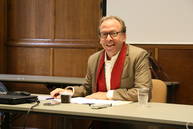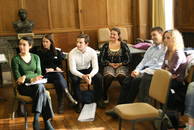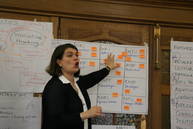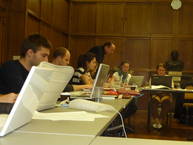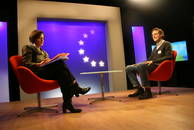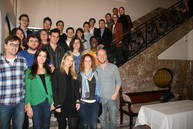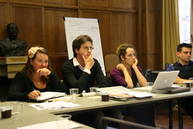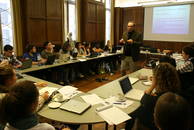The EXACT Network Seminar on Professional Skills (Final Programme) was an intensive 14-day course with the aim of guiding early stage researchers into the practicalities of working life.The contents of the course could be summarised as communication, career and consciousness.
Learning to communicate one’s research and one’s knowledge is an essential skill. One needs to learn to use different languages, as it were, formulate oneself in different ways to communicate with different kinds of audiences, to be understood and to understand different information needs. This part of the course consisted in communicating through media (three types of), and to policymakers.
Another important part of the course was to reflect on possible career paths and ways of earning one’s living as a researcher, through practical exercises and through listening to the very personal real-life stories of experienced colleagues. Research funding was tackled through lectures and exercises in drafting proposals and administering research projects, as well as through an overview of the current research funding landscape and in particular funding by the EU. Special attention was paid to think tanks, their role in Europe, their characteristics as working milieus and their requirements on researchers in terms of skills. Job interviews for an imagined think tank were conducted. Even work in public administration, national and European, the EU concours, politics and the differences between academic and policy-oriented career paths were illuminated from different angles.
Preparations for this course started already in the autumn of 2010 on the basis of an early model of a TEPSA training course from 2008-9. The course was offered to EXACT fellows as well as to other early stage researchers from the TEPSA network and beyond. In preparation of the course, the participants had two written assignments to deliver before the start: a career development plan, that helped to focus the career related training but also provided a way of reflecting on the immediate impact of the course on how they saw their career options after the course, and an evaluation of personal work experience in a think tank, which was reflected in the discussion on career paths and the role of think tanks in Europe. During the course, the participants were to participate fully and actively, deliver three different written products (a 3-4 page policy brief on a topical issue, a project proposal draft for funding, and an op-ed based on a policy brief by a colleague), as well as to report on or chair a part of the programme.
